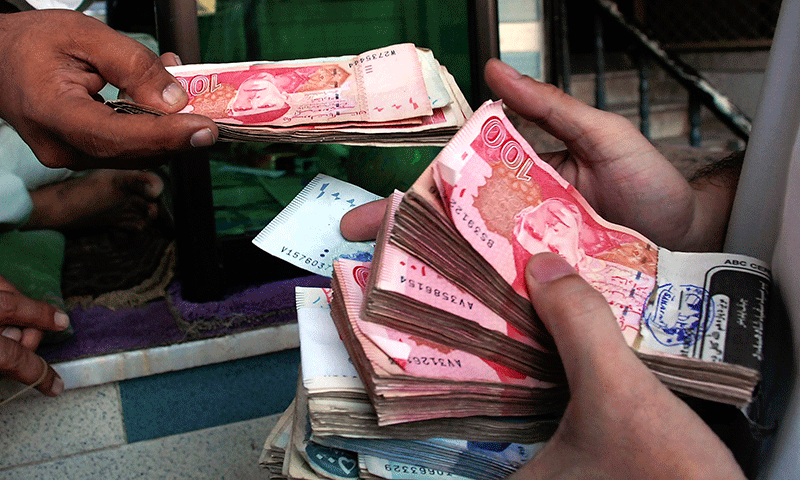KARACHI: The country’s debt-to-GDP ratio dropped to 65.7 per cent in September, reversing last fiscal year’s upward trend, according to the latest data released by the State Bank of Pakistan (SBP) on Monday.
The data shows a substantial increase in central government domestic debt, which rose by Rs7.838 trillion over the past year to reach Rs47.536tr in September 2024, up from Rs39.698tr in September 2023. However, between June and September 2024, domestic debt increased by only Rs376 billion.
During the first quarter, the government’s borrowing needs were reduced due to surplus liquidity, largely due to a large supply of Rs2.7tr as SBP profits. Initially, the government avoided borrowing through treasury bills, later borrowing below target and the maturing amount.
Bankers suggest the government is trying to restructure its debt portfolio, shifting from short-term to long-term obligations. However, lower tax collection during the first four months of FY25 could compel the government to borrow more than its earlier estimates.
“As of September 2024, Pakistan’s debt-to-GDP ratio has dropped to 65.7pc, marking its lowest level since June 2018,” said Tahir Abbas, head of research at Arif Habib Limited. “The domestic debt-to-GDP ratio stands at 43.1pc, while the external debt-to-GDP ratio is 22.7pc.”
The central government’s total debt decreased to Rs69.6tr in September 2024, down by 1.1pc (Rs792bn) month-on-month compared to Rs70.4tr in August.
The country has been struggling against both domestic and external debts, with the economy seeming to be trapped by the two debts as they extract about Rs9tr from the economy — the biggest share from the budget and an amount more than the tax revenue.
Financial experts said the tax-to-GDP ratio might create issues for the sitting government as the IMF has been demanding an increase in tax revenues.
At the same time, experts have been warning the government not to impose more taxes as it would greatly hurt economic growth and drastically reduce consumption.
The domestic economy depends more than 90pc on consumption, and the economic growth rate is already much below the country’s requirements. The government estimates the FY25 growth to be in the range of 2.5pc to 3.5pc.
More taxes would dent the growth, leading to less revenue collection.
Published in Dawn, November 12th, 2024














































